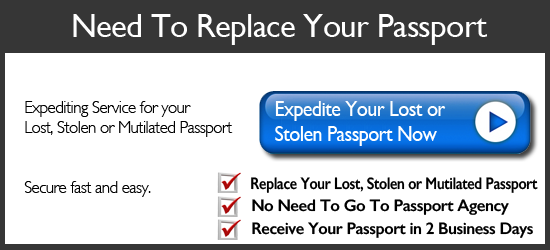Have you finally had enough of the American experiment? Do you want to move out of the US or create an exit strategy should you need to act? Lucky for us, the American passport is one of the best in the world. This means you have more opportunities to visit and live in a variety of countries than most.
You’re not alone in looking for the door. Between the recent Supreme Court decision on abortion rights, gun violence and other safety concerns, racial tensions, politics, inflation and more, many Americans have had enough and are thinking about moving abroad to places like Canada, Portugal and Italy.
Prohibitive housing prices, a strong dollar and political rancor have also contributed to a wave of Americans relocating to Europe.
Many people have spent decades working in the U.S. and then retiring in a foreign country where their wealth will stretch further. Others want to immerse themselves in a new culture by joining the workforce and living among the locals. Some remote employees are curious about testing the limits of their newfound location independence. There are plenty of countries that would love to have you and your U.S. dollars. For example, you can become a resident of Panama with an investment of $40,000 or Costa Rica by purchasing real estate worth $200,000.
Whether you want an exit strategy should you decide to pull the ripcord, or you’re ready to go today, here’s how to plant your 5 flags offshore to prepare the way.
Here’s how to move you and your assets out of America in 5 steps.
1. Open An International Bank Account
The first step in preparing the way for your exit is to move some of your cash out of the U.S. You’ll need to fund your life abroad and opening an offshore bank account can be a long and annoying process.
An offshore bank account also comes with asset protection and investment benefits. You can hold just about any currency you like and no creditor can access your account.
Note that the U.S. IRS can seize your offshore account if your bank has a branch in the United States. For this reason, I always suggest you choose an international bank with no U.S. ties.
However, very few offshore banks will accept American’s these days. Ever since our government passed FATCA, forcing foreign banks to report all accounts owned by U.S. citizens, smaller institutions have found that compliance costs outweigh the profit in accepting American accounts. As a result, we’re not welcome at about 90% of the banks around the world.
There are still a few good offshore banks out there that do not have branches in the U.S., but the list is getting smaller and the account minimums are getting larger.
I suggest you open a small account in your country of residence, and hold the majority of your assets in a tax-free offshore jurisdiction. For example, the Cook Islands and Panama provide excellent privacy and protection to the American abroad. You will also find good international banking options in Belize and St. Vincent.
If you’re looking for a managed account with over $1 million, you’ll find that the larger banks in Europe are open to you. Banks in Switzerland, Germany and elsewhere will accept a large account because the margins justify the compliance costs.
No matter your account size, the bottom line is that the first step to privacy and moving out of the US is to establish an offshore account. Find a bank that fits your needs and investment objectives before making any other decisions.
2. Take Your IRA Offshore
If you’re going to move abroad, don’t forget your retirement account. You can take it with you by forming an offshore IRA LLC and transferring cash offshore. This will give you total control over your retirement savings.
Once offshore, you must follow all of the same retirement account rules that apply in the U.S. So, you should take distributions when required, can’t use the money to pay your bills, and should be managing the account as a professional money manager would. For more information, contact us here.
Note that you can also use your IRA to get residency in certain countries. For example, you can invest $20,000 in Panama and receive residency (legal and government fees should be paid with non-IRA money). For more information, see How to get Residency in Panama.
3. Get Residency In A Foreign Country
The key to maximizing the tax benefits of moving offshore is to become a legal resident of a foreign country. Turn your new country into your home base and file the paperwork to become a legal resident so you’re not relying solely on your US passport.
Remember that the US government can revoke or refuse to reissue your passport for any reason. You must secure your status as a permanent resident to minimize this risk. For more on this, see: Expats, the IRS is Coming for your Passports
As I said above, the lowest cost residency is Panama, where you can become a legal resident with an investment of $20,000 if you are from a “friendly nation.” For more, see: Personal and Financial Advantages of Panama’s Friendly Nations Visa
There are many offshore residency options around the globe. Just about every country has one if you have the cash. For example, Costa Rica is a direct competitor to Panama and will give you residency if you buy a home valued at $200,000 or more.
The key is to find a residency program in a country that won’t tax your worldwide income. Sure, you can move from the US to the UK or Canada, but what’s the point? These are beautiful countries, but their tax rates are not so pretty.
4. Set Up An Offshore Company
The next flag to plant offshore is a corporation or Limited Liability Company. If you operate a business abroad, you need an offshore corporation in a zero-tax jurisdiction. If you want to protect personal savings or a small business, go with an LLC, IBC or an international trust.
An offshore company will help you maximize the value of the foreign earned income exclusion and protect your assets from creditors. If you set it upright, an offshore company can be completely private and secure.
International business can also eliminate US self employment tax on your business profits. Operate as a typical Schedule C business, or through a US company, and you will pay 15% in SE tax. Setup offshore, qualify for the Foreign Earned Income Exclusion and pay nothing into the US social system.
Finally, an offshore company may allow you to retain earnings offshore. If your net profits exceed the Foreign Earned Income Exclusion, you can hold the extra inside the corporation tax-deferred. But, be careful, the IRS is watching these transactions closely.
Note: There is usually no tax benefit to incorporating offshore while you are living in the United States. Your offshore company will be tax neutral (won’t increase or decrease your US taxes). Once you move abroad, the tax benefits will begin, to accrue.
5. Buy A Second Passport
If you’re planning to move out of the US permanently, or even give up your US citizenship, then you need a second passport. You can move to certain countries for 5 years and then apply for citizenship, or you can buy a passport and have it in hand in 90 days to 8 months.
If you want a quality travel document, then be ready to spend $1.2 million for Malta, $140,000 for Dominica, or $300,000 for St. Kitts. These are all great passports that will get you into the EU visa-free. Malta is the only one that gives you access to the United States without a visa.
If you aren’t ready to commit but want to buy a backup passport as a hedge against country risk, then consider a second passport from the Dominican Republic. The DR will sell you a passport for $200,000 that will get you out of the US in times of trouble and into much of the Caribbean, Japan, Colombia, Ecuador, and 54 countries in total.
This article covered both residency and second passports. If you’re unclear of the difference, take a read through: What’s the Difference Between Residency and a Second Passport?
As you prepare your exit strategy, keep each of these items in mind. It will take weeks to set up an offshore company and bank account, and months to get residency abroad. You should get started now before the lines get too long and the prices get Trumped up.
I hope you’ve found this article on how to move out of the U.S. in 5 steps to be helpful. For more information on moving you or your assets offshore, please contact us here.
EA Editorial Staff














